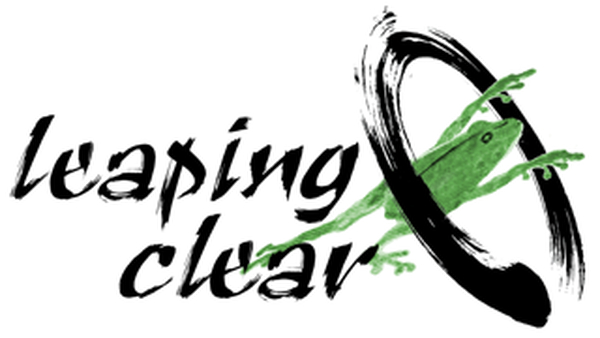Judith Chalmer
Purpose
I'm pretty sure I'm not contributing,
exactly. With this. Firewood
heaved into the open hatch of the car,
a tackle box rummaged with spoons
and an oddity of knives,
a neighborly clatter of dishes.
None of these, for instance, would
answer the question, what do you do?
I'm watching the young trees
at the edge of the pond, two maples
and a beech, hold their angled pose
like dancers, without fatigue. Last night
I left the canvas chair under the drip line.
This morning a blue dasher dragonfly
lit on the cherry patterned oilcloth
shoveling a fruit fly into its mouth.
Then I moved the fork. Maybe
it's all right, loving as I do, the fretwork
of the ferns, the folded fists of the newborn
berries. Thunder rumbles for hours
in the nearby hills. The tent will take hanging
at home, its green walls sticking together.
I'm resigned to soggy underwear.
Is this how I'm meant to show up?
What have I done to be kind?
What will I do when I'm tired
and it seems a great purpose
has been lost? The needles
under the pines pile up the color
of summer hay and honey.
There's a tub of towels, a dented pot
and some red plastic plates.
Somewhere near and certain
not to be found, a hermit thrush plays
its bright marimba. And how is it I'm so
late, tending to this temporary shelter?
Autumn
And if there are sorrows?
Not the duckweed in the dense
sulfurous mud, nor the grumbling
party boat motoring to the dock,
not the clothesline cinched,
or the last open flap tucked neatly
into the tent, not the dog bed,
dampish under the table, or the sticky
branch piled next to the fire,
not the gull raising a baffled wing,
loose feather floating over the pond,
not the tilted tarp or the bandaged
stand of birch, not the rinse bucket
or the ragged cloth- none of these
will mind them. When the book
bag yawns, when the chipmunk
dives, when the young loon feeds
when the songbird preens,
and the fog starts to break and
the web starts to sag, when
the acorn drops and the lichen
curls, when the beetle shines and
the rain jacket drips, would that I,
too, could un-know this longing.
Walking
It's a plain-spoken story. It's where you're going today.
Maybe you're at home in the woods and often,
but even so, you're scared underneath, a little.
A broken spine at the top of the pines
reminds you of something. Paper thin and distinct
in the ribs, the leaves of the beech have aged
like the backs of your hands. It's nothing but still
each day requires some concession. The branches
have dropped their icy coats and the path is a litter
of small fittings. The dog is nose down
in the bole of a tree, great balls hanging
from his astonished chin. Someone has left
giddy tracks, an ecstatic notation on the frozen
surface of the pond. Up the hillside everything
is rounded, elbows and shoulders laid out giant,
immobile in the snow. You climb over, as best you can,
finding here and there, forgiveness for timid hesitation.
Some of the shorter pines loose their shaggy heads onto yours
while nearby nurse trees bend over the battered saplings.
One small cloud edged in ruby drifts over the pond
and the rumpled birds rise up to their posts to sing
in the torn, tender grace of the evening.
Diary
Covered in mist, cover of night, the serious air,
cold fog swirling around us. The minnow
that lingered while we talked, dirt surrounding us,
soot, everywhere, the path fringed with fungus.
It takes something serious, something drastic,
like leaving your bed, like holding a stick,
to really change. All night we stayed covered,
cold, the path frilled with fungus, soot all around us,
and still we smelled wintergreen. We smelled apple
and berry. We made a bed that was soft
in the night, the serious night. We touched hands
and our breath was swirling. Sticks snapped,
turtles fled, we looked different to each other
and smelled. It was good. It was serious, the path
was fragrant with fungus. We slid a stick in the water
and talked, the minnow we saw disappearing.
Judith Chalmer
My meditative practice begins in the natural world while walking, and is continued, in a different way, when I am indoors, seated, and open to tracking my internal wandering. Both of those forms of meditation contribute to my writing, which begins in close observation, and continues with attention to the musical qualities of language.
Judith Chalmer lives with her wife in Burlington, Vermont. Her poems have been published in anthologies and journals, most recently, Birchsong, Stone Canoe, Apex, Goblin Fruit and Quiddity. She is co-translator of 2 books of haiku and tanka with poet, Michiko Oishi, Deepening Snow (Plowboy Press, East Burke, VT 2012) and Red Fish Alphabet (Honami Syoten, Tokyo, 2008). Her first collection of poems, Out of History’s Junk Jar, was published in 2015 (Time Begin Books, St. Louis).
More on Judith Chalmer's work can be found on our Links page.

